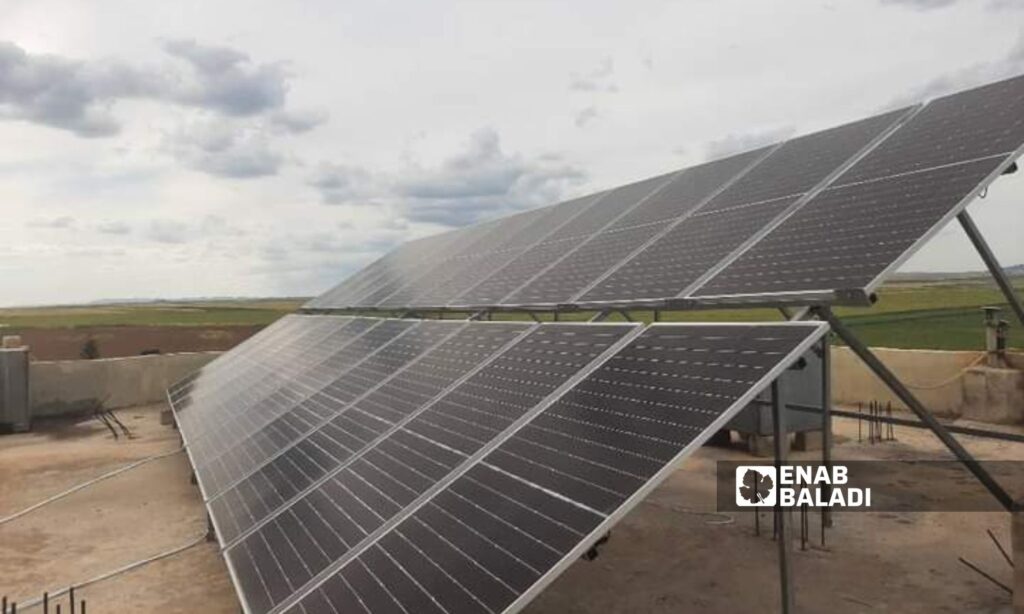Al-Hasakah – Rita Ahmad
Residents of northeastern Syria rely on electric generators (known as amperes) to meet their energy needs amidst ongoing crises at main power stations that have plagued the region for years. These issues worsened following Turkish attacks last January on areas controlled by the Syrian Democratic Forces (SDF).
The attacks targeted oil facilities and power stations, causing many to go out of service.
Alongside ampere generators, some residents resort to installing solar panels, which cost no less than other energy options.
Despite amperes and solar panels being an alternative solution, their high subscription costs, coupled with the residents’ weak purchasing power, make them an expensive option.
Ampere subscription drains the pockets
Sundus Abdel Ghani, a resident of al-Malikiyah town in the countryside of al-Hasakah province, faces significant difficulties since the beginning of this year due to power outages, forcing her and her family to rely on amperes, with fees exceeding 150,000 Syrian pounds, along with installing electronic breakers.
Those who wish to subscribe to the ampere system must pay an initial one-time subscription fee of $40, then pay monthly for the number of amperes they subscribe to, in addition to the electronic breaker and power cable. These can cost 150,000 pounds (around $10), with some reaching up to 250,000 pounds (about $16 USD).
Monthly subscriptions are divided into three tiers: eight hours, 16 hours, and 24 hours.
Abdel Ghani told Enab Baladi that the price for one ampere reaches 14,000 Syrian pounds (about $1), and it powers devices for eight hours per day.
The price for amperes in generators that run for 16 hours is about 59,800 Syrian pounds (around $4).
For a full 24-hour system subscription, the price reaches 89,100 Syrian pounds (about $6).
Additionally, there are extra charges (paid once), which can reach up to $10 for the electronic breaker in some cases.
These high costs add financial pressure on local residents amid difficult economic conditions.
Solar panels: An expensive option
Interest in alternative energy using solar panels has increased, especially in summer with rising temperatures.
Samir Khalil, the owner of a solar power installation shop in Qamishli, told Enab Baladi that there has been a recent increase in demand for this technology.
He noted that there are different types of panels, including Chinese and German ones, with varying prices, and most clients prefer to buy panels that are sufficient to power their homes.
Typically, a home needs five panels, which range in cost from $800 to $1,500, depending on the type of panels chosen and the batteries used in the system. There are first, second, and third-grade panels available.
On the other hand, many residents find it difficult to install solar panels due to their high cost, especially those who earn a monthly salary or work on a daily wage basis.
These residents hope for a decrease in the prices of this service to be able to secure their electricity needs.
Muhannad Khaled, a teacher in the Autonomous Administration areas, earns a monthly salary of 1,200,000 Syrian pounds.
This salary is not enough to buy a solar power system, even if Khaled saves his salary for several months. However, he believes that the benefits of solar power outweigh the cost after installation, particularly with rising subscription fees for the ampere system, making it beyond his economic reach at present.
He told Enab Baladi that he receives his salary in Syrian pounds, while all goods and necessities are sold in US dollars.
The exchange rate of the US dollar is 14,850 Syrian pounds, according to the S-P Today currency exchange site.

